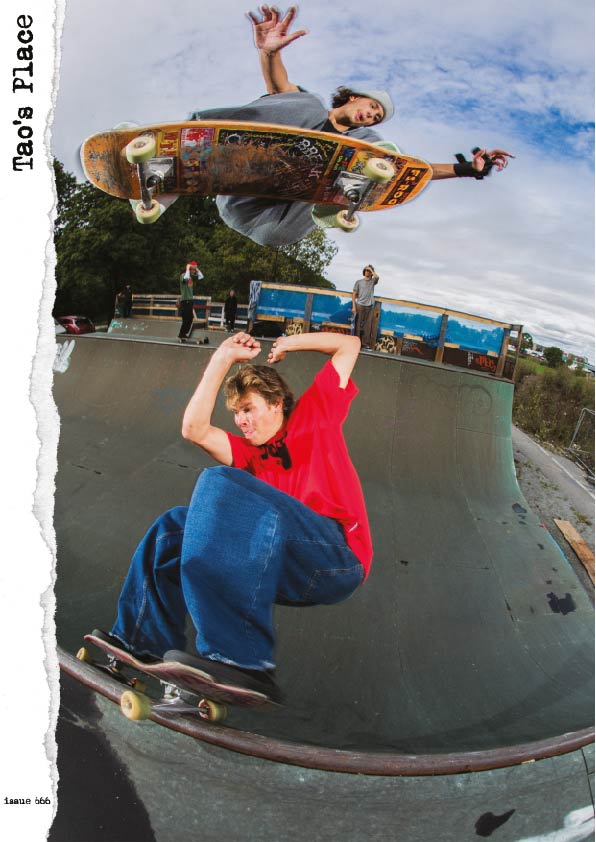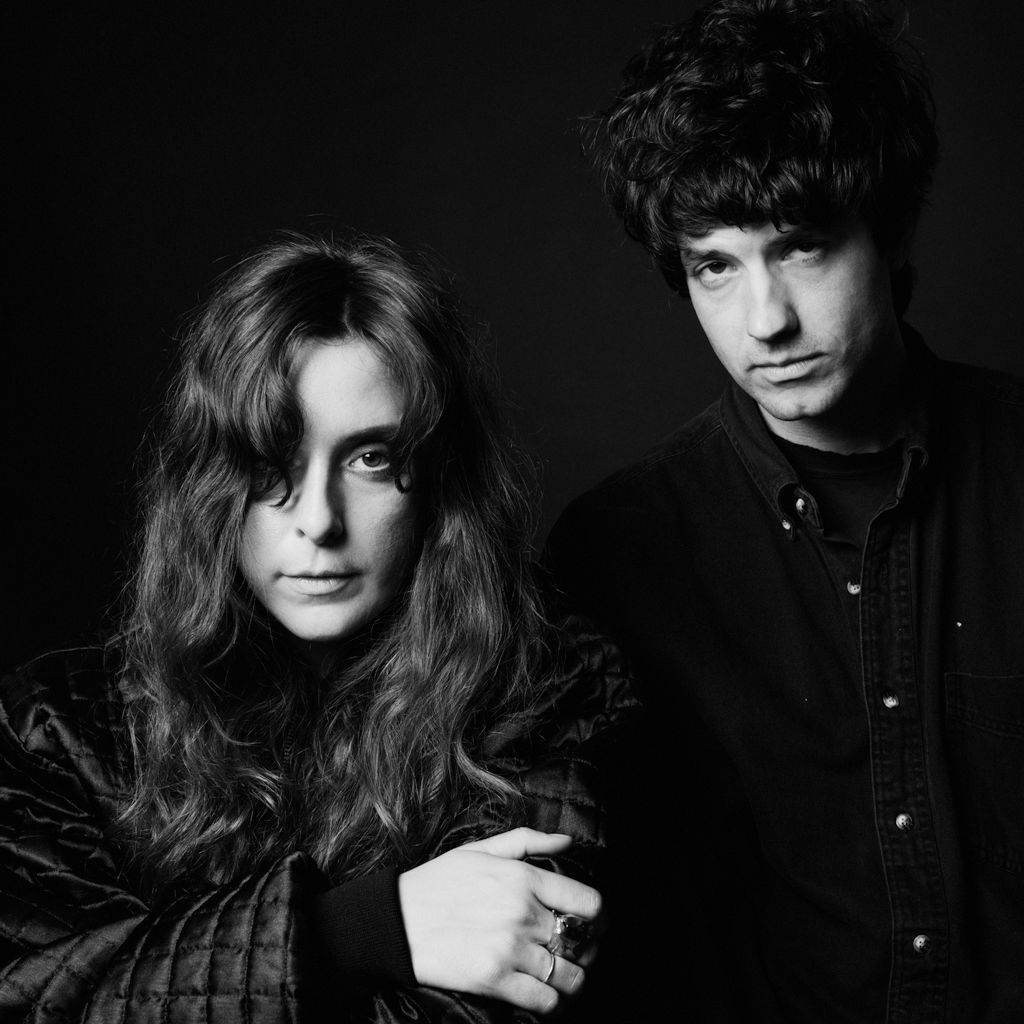Having closely followed Beach House’s incredibly self-determined career moves for almost a decade now, we can say one thing: the Baltimore duo, comprised of multi-instrumentalist Alex Scally and singer Victoria Legrand, has certainly grown up – both musically and as people. Based on the motto “see you later, drum kit,” Alex’s truckloads of vintage keys, canned beats, and silvery guitars are still to be found on their forthcoming album “Depression Cherry,” whereas Victoria’s incredible timbre is even more staggering than before: What seems to be a return to their hazy dream pop roots at first, is actually quite banging, in a haunting, understated way; “it’s soft but it’s also this other thing,” as Victoria put it in our recent conversation which took place near PLACE Magazine’s headquarters in Berlin.
Since we seriously recommend checking out all five albums they’ve released so far (plus visual highlights such as the Eric Wareheim-directed clip to the track “Wishes”), the following is a rare attempt to illustrate just how they’ve grown and changed over the last six years. Here’s a triptych, comprised of three face-to-face interviews we had with them – in late 2009, in summer 2012, and just now, a few weeks back.
Chapter 1: The “Teen Dream” years (2009-2010)
Though more so on the older records, I’d say that there’s still this feeling of nostalgia to be found in your music. Are you nostalgic?
V: I don’t like this topic.
A: Victoria hates nostalgia.
V: I don’t like the past. I find it kind of revolting. People are totally obsessed with what was… and I’m not saying that you’re revolting.
Well, I am not against nostalgia, so if I hear it in your music that’s a good thing, really.
V: I was going to say: I think it’s your nostalgia for the first two records; that’s what makes you feel like that. But to answer your question: no. Maybe my voice just sounds like that. So I’m screwed.
You could try Auto-Tune; it’s the future!
V: Auto-Tune!
A: I think the reason why people always say that is because maybe in our songs she’s working herself through her own past. Working on something is a way to get beyond the past so you don’t have to deal with it anymore.
…unless you decide to put it out as an album.
V: Yeah, I like that.
But seriously, the album title “Teen Dream” sounds like nostalgia too.
V: I know what you mean, but it’s more like an ode.
A: It can also be a mission statement, like a call to arms of sorts.
V: “Don’t give up on how cool you were when you were obsessed with crap!”
A: Like there’s nothing wrong with being 27 and having a huge crush on someone. And why just have sex; you can make out too. Making out is really fun.
V: Like, make a collage!
A: Yeah, if you see something in a magazine that you like, why not cut it out. You don’t have to be so rigid.
Kids today would probably just take a screen shot.
V: It comes from that really awesome thing that teenagers have, which is an unlimited amount of energy to give to something that they like or believe in. I mean, all the time we’re obsessed and we’re just nerding out about stuff that we love, but for this record it just seemed like that title – not only did the words just kind of come out and immediately sounded right, because that’s happens –; it’s more about how we felt while we were making this record: we were passionate and we believed in it. People might think you’re a 28-year-old child but you’re just an excited artist.
What were you guys into as teenagers? What were your actual teen dreams?
A: I was really obsessed with music.
V: I was playing piano, I was pretty good in high school, but I was way into skateboarding – like, skateboarders.
Skateboarding… or skateboarders?
V: Both. Boys. I kind of wasn’t really allowed to date. But I liked music.
A: I’m still excited like a dog.
V: We were horny.
Chapter 2: The drum kit-driven “Bloom” years (2011-2013)
Is there anything you love as much as you love music?
A: I actually really like physics.
Physics?
A: Yeah, astronomy and stuff. It’s like the most exciting time ever right now. This stuff I’m talking about is almost borderline imaginary. The things people are saying are just crazy.
What are they saying?
A: People are saying that what we see only makes up four percent of the universe. So the stars, all that stuff, is actually no more than four percent. The rest of it is dark matter and then this other thing called “dark energy” which they believe is 70 percent of the entire universe.
V: I believe in “dark energy”. Sometimes you feel and see things you can’t explain: it’s not a shadow, it’s not light, it’s not a ghost – it’s just a slip.
Did it just knock on the door?
V: That was my foot.
A: And another really interesting thing is the difference between the past and the future, and that there’s no scientific reason why the future and the past should be different.
V: That’s because people say so.
A: But time doesn’t matter for any law of physics.
V: I like this line where it goes from science to the whole imagination-creation thing, and that they’re constantly going hand in hand, because when you’re making music it goes like that all the time. The creative stuff is so free, it just happens. Like a star that explodes and burns and “is” – and then it takes all this work to keep it lit forever.
Did it ever happen to you that you actually weren’t sure if something really happened or not?
A: Or maybe just a dream? Yeah, I know what you mean. Do you think it might have to do with the Internet too?
Yeah, of course the Internet is hugely influential in that way. Nowadays you can go back to last night and check at your friends’ Instagrams though…
V: It’s affecting the experience of time and the human brain.
You think in a good or in a bad way?
V: I think in a bad way.
A: I think it’s at least double-edged, and it’s possibly very bad. I don’t like that people aren’t retaining information. You just access it for something, and then you just forget it the next moment.
Chapter 3: The “Depression Cherry” years (2014 till today)
What have you learned since we last spoke?
V: I guess we’ve learned that you can always return to yourself, because you always – kind of have yourself; you’re still there. And granted, every record has changed and evolved in little ways, but because of how natural we are about stuff, I think we’re lucky because we’ve been able to kind of feel changes, but then if we want to go back the other way, we can, because we have some sort of… we have a core.
Yeah, that’s what this album sounds like. Last time around you said that when album is done, it’s a period when you don’t have any questions, because the album is an answer in itself. What about this time?
V: I’m sure there are still questions, but I think that, particularly with this record because this is what has been our life for the last three years, and more than that, just in terms of the depth of the work, but when you get older you start to really kind of be able to call things what they are and give it a name or something, and it really is just like: they’re statements. They are all statements, statements of feelings, and it’s not that there are so many questions that I need to have answered, it’s just that every time you make an album it’s a “physicalization,” a visualization of that period of our life. And it’s huge. I think it’s always huge in some way. For us, it’s always these big, sort of artistic statements. And that’s why it’s always hard for us to try to pinpoint exactly what each little thing is, because it’s really an amalgamation of philosophy and things we’ve seen and things we’ve been inspired of and past trauma and maybe even future trauma we don’t even know it’s going to happen.
A: Weird moods that are moving through.
V: We’re just, like, little antennae or mediums of other people’s pain. I personally feel very sensitive to other people’s pain and things I’ve heard in my life, read about, whether it’s in movies or books; there are things that stay with you for a reason, and when that happens you feel the need to express that somehow.
Words & Interview: Renko Heuer
Photo: Shawn Brackbill


